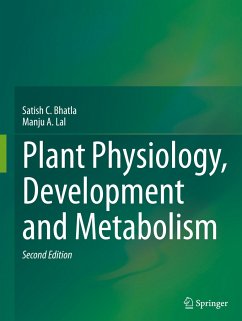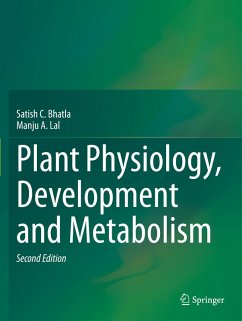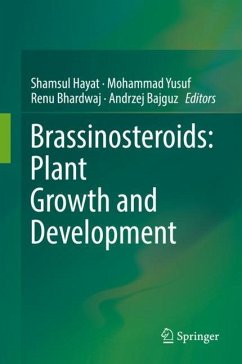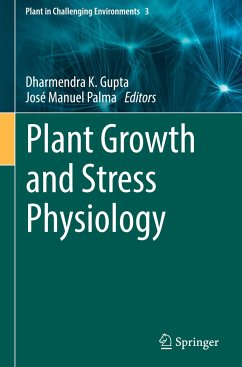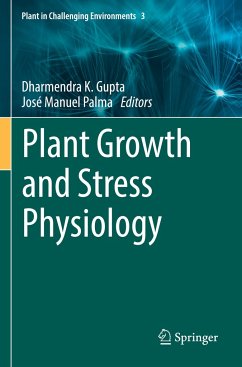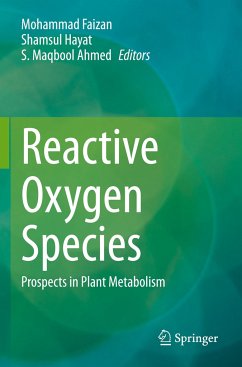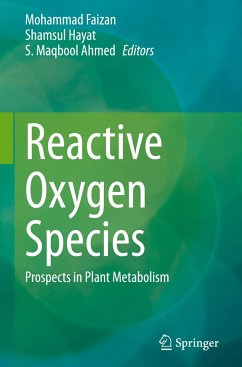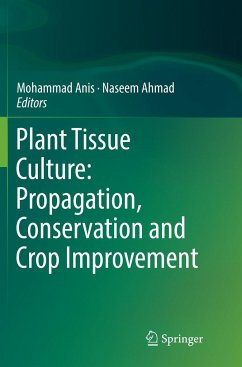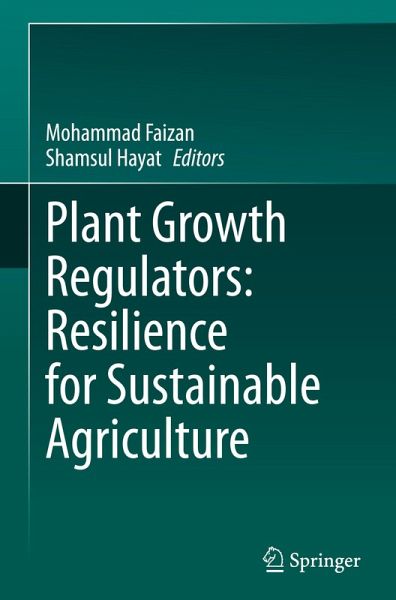
Plant Growth Regulators: Resilience for Sustainable Agriculture

PAYBACK Punkte
76 °P sammeln!
This edited book focuses on plant growth regulator synthesis, potential applications, stress tolerance mechanisms and preservations. It explores the recently registered molecules strigolactones, karrikins, and hemin-mediated regulation of plant biology. Chapters cover the integration of plant hormones in the biological system as an opportunity for sustainable agriculture. This book explores the latest information on plant growth regulators covering both theoretical and practical aspects.Plant growth regulators are organic chemical compounds that alter or regulate the metabolism in plants. In p...
This edited book focuses on plant growth regulator synthesis, potential applications, stress tolerance mechanisms and preservations. It explores the recently registered molecules strigolactones, karrikins, and hemin-mediated regulation of plant biology. Chapters cover the integration of plant hormones in the biological system as an opportunity for sustainable agriculture. This book explores the latest information on plant growth regulators covering both theoretical and practical aspects.
Plant growth regulators are organic chemical compounds that alter or regulate the metabolism in plants. In plants, plant growth regulators play the role of biostimulants that can enhance resistance to stress. Plant growth regulators in low concentrations often lead to vital improvements and high yields in crop plants. Plant growth regulators are involved in several physiological, morphological, and biochemical mechanisms associated with plant growth, development and defence againststresses.
This book brings together the latest research work on plant growth regulators and their emerging importance. The book is a useful read for students, researchers, and instructors in the field of plant biology.
Plant growth regulators are organic chemical compounds that alter or regulate the metabolism in plants. In plants, plant growth regulators play the role of biostimulants that can enhance resistance to stress. Plant growth regulators in low concentrations often lead to vital improvements and high yields in crop plants. Plant growth regulators are involved in several physiological, morphological, and biochemical mechanisms associated with plant growth, development and defence againststresses.
This book brings together the latest research work on plant growth regulators and their emerging importance. The book is a useful read for students, researchers, and instructors in the field of plant biology.




